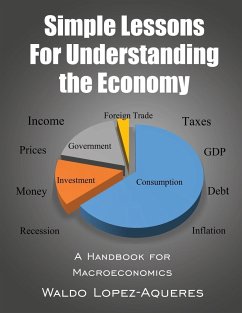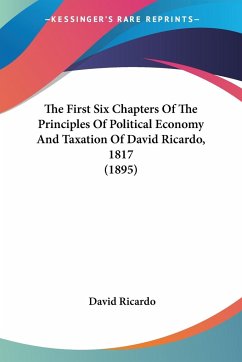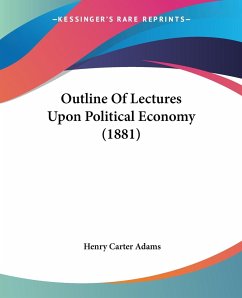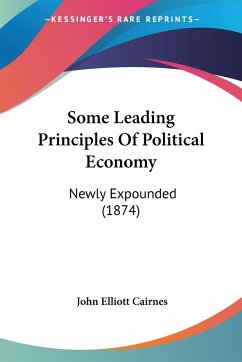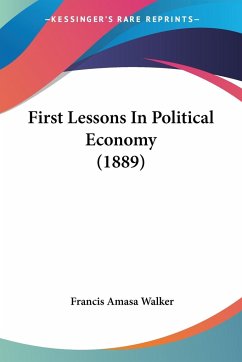
First Lessons In Political Economy (1889)
Versandkostenfrei!
Versandfertig in 1-2 Wochen
32,99 €
inkl. MwSt.

PAYBACK Punkte
16 °P sammeln!
""First Lessons in Political Economy"" is a book written by Francis Amasa Walker in 1889. It is an introductory textbook on the subject of political economy, which is the study of how societies allocate resources and make decisions about production, consumption, and distribution of goods and services. The book covers a range of topics, including the history of economic thought, the principles of supply and demand, the role of government in the economy, and the impact of international trade. It is written in a clear and accessible style, making it suitable for students and general readers alike...
""First Lessons in Political Economy"" is a book written by Francis Amasa Walker in 1889. It is an introductory textbook on the subject of political economy, which is the study of how societies allocate resources and make decisions about production, consumption, and distribution of goods and services. The book covers a range of topics, including the history of economic thought, the principles of supply and demand, the role of government in the economy, and the impact of international trade. It is written in a clear and accessible style, making it suitable for students and general readers alike. The book is widely regarded as an important contribution to the field of political economy and remains a popular text for introductory courses in economics.This scarce antiquarian book is a facsimile reprint of the old original and may contain some imperfections such as library marks and notations. Because we believe this work is culturally important, we have made it available as part of our commitment for protecting, preserving, and promoting the world's literature in affordable, high quality, modern editions, that are true to their original work.




